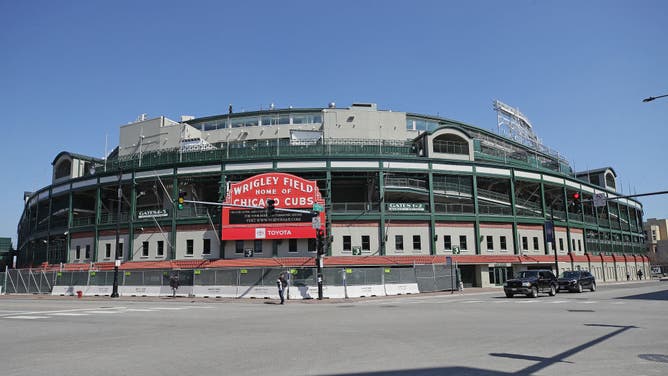Study Claims Climate Change Causing More Home Runs In Baseball
MLB hitters are smashing more home runs than ever, and it's all thanks to climate change. At least, that's what a new study claims.
And here we all thought it was the steroids.
According to researchers at Dartmouth, rising temperatures could end up accounting for 10 percent of all home runs that will occur this century. That's because as the air gets warmer, it also gets less dense. This allows baseballs to travel farther.

Freddie Freeman hits many home runs because of climate change. (Photo by Harry How/Getty Images)
The study, published in the Bulletin of the American Meteorological Society on Friday, sought to answer why the last 13 years have seen an upswing in the number of homers. This time period saw hundreds more home runs compared to the previous decade.
Study says climate change is altering the game of baseball.
Does warmer air mean more dingers?
Chris Callahan, lead author of the study and a doctoral student in climate modeling and impacts, says the evidence is "strong."
"I remember being surprised at how strong the finding was," Callahan said. "We’re not saying that every home run now is because of climate change, but you take the data and slice it any way you want, you find the same thing."
Researchers analyzed more than 100,000 MLB games and 220,000 individual hits. Then, they compared those numbers with games played in unseasonably warm temperatures.
"Games that were held in open stadiums during the day, when the sun is out, saw a spike in home runs, while games held at night or in domed stadiums would see a smaller number of home runs," the study found.
Of course, the study didn't account for who was pitching, who was hitting, the dimensions of the park or literally any other thing affecting the number of home runs.

According to a climate change study, open-air Wrigley Field, would see a rise in home runs as the temperatures increase. (Photo by Jonathan Daniel/Getty Images)
Researchers proposed for every 1 degree Celsius increase in temperature, the number of home runs in a game goes up almost 2 percent.
Now, I'm no Greta Thunberg. But I decided to do my own climate change case study with this information.
In 2019 (a record year for home runs in Major League Baseball), teams averaged 1.39 home runs per game. So a 1 degree Celsius raise — or 33.8 degrees Fahrenheit — would skyrocket that number to a whopping 1.4 per game.
In other words, I don't think we need to alert Cooperstown just yet.
But if we can blame climate change for affecting mental health, hate speech, obesity rates, violent crime, and the rise of the Islamic State terrorist group, we might as well throw baseball in there, too.